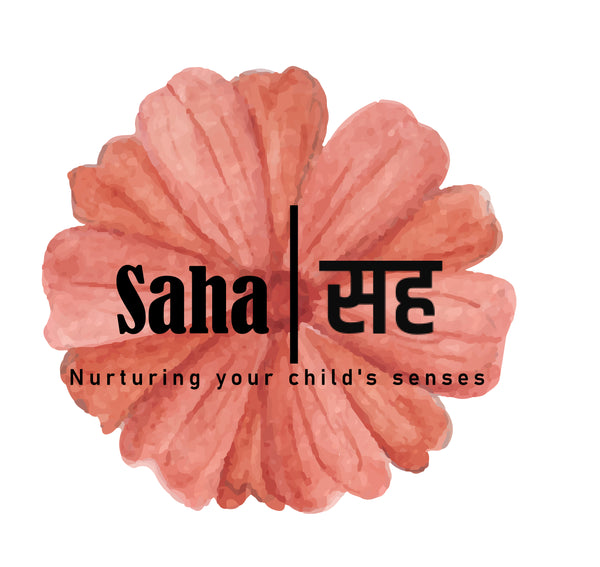
Exploring the World of Waldorf Dolls: A Timeless Toy for Creative Development
Share
In an age where toys are often flashy, electronic, and designed for immediate gratification, the Waldorf doll stands out as a beacon of simplicity and deep-rooted educational philosophy. These handcrafted dolls are not just toys; they are tools for nurturing creativity, imagination, and emotional growth in children. Aligning perfectly with the principles of Waldorf education, these dolls invite children into a world where their imaginations can soar, and their emotions can be explored.
The Essence of Waldorf Education
To truly appreciate the value of Waldorf dolls, it’s essential to understand the foundations of Waldorf education. Founded by Rudolf Steiner in the early 20th century, Waldorf education emphasizes holistic development, integrating emotional, social, intellectual, and physical growth. The philosophy encourages children to engage with the world around them through artistic expression, imaginative play, and hands-on learning.
At the heart of this educational approach is a profound respect for childhood development stages. Waldorf education celebrates childhood as a time of rich potential and creativity, advocating for a learning environment that is supportive and nurturing. This philosophy naturally extends to the types of toys children play with, particularly the Waldorf doll.
The Design of Waldorf Dolls
Waldorf dolls are typically handcrafted from natural materials such as cotton, wool, and sometimes silk. They boast a simple, minimalist design that sets them apart from the brightly colored, overly exaggerated features of many contemporary toys. The facial expressions on a Waldorf doll are neutral, often depicting a serene or friendly look that encourages children to project their thoughts and feelings onto the doll.
This design flexibility allows children to engage in play that mirrors their emotional states or to create their own narratives. For instance, a child might use their Waldorf doll to express happiness, sadness, or even confusion, thus giving them a healthy outlet for exploring complex emotions. This form of imaginative role-play contributes significantly to emotional intelligence, helping kids develop empathy and understanding for themselves and others.
Versatility in Play
One of the most appealing aspects of Waldorf dolls is their versatility. These dolls come in various forms, including babies, animals, and whimsical fantasy characters, making them adaptable companions for different types of play. For very young children, a simple doll can be a nurturing toy, fostering essential skills in empathy and care. As children grow, they naturally expand their play scenarios, integrating the dolls into more intricate storylines and adventures.
Imagine a preschooler tenderly cradling a baby doll, mimicking their parents, and nurturing it with love. Fast forward to a few years later, and the same doll might be a key character in an elaborate, heroic tale where the child is the storyteller, creating vast imaginary worlds filled with friends, challenges, and adventures. This seamless evolution in play reflects the doll's ability to grow alongside the child, adapting to their changing interests and developmental needs.
Craftsmanship and Sustainability
Waldorf dolls are typically handmade, either by artisans or as part of family crafting traditions. This craftsmanship not only ensures the uniqueness of each doll but also lays a strong foundation in appreciation for handmade goods and the effort that goes into creating them. In a world flooded with mass-produced toys, Waldorf dolls serve as a reminder of the value of craftsmanship and the importance of slowing down.
Moreover, the emphasis on natural materials aligns well with contemporary eco-friendly values. In an era where sustainability is crucial, choosing a Waldorf doll means opting for a product that is not only friendly to the environment but also beneficial to child development. These dolls often last for generations, thanks to their durability, and can become cherished heirlooms passed down from one child to the next, adding to their sentimental value.
Emotional Learning Through Play
The role of play in emotional learning cannot be underestimated. As children engage in pretend play, they are not merely having fun; they are developing essential life skills. Waldorf dolls serve as catalysts for this developmental process. Through imaginative scenarios, children learn to face and navigate emotions, practice coping strategies, and understand social dynamics in a safe environment.
When a child plays with a Waldorf doll, they can act out various scenarios involving friendship, conflict, resolution, and care. The simple act of nurturing a doll can help a child process real-life experiences, from the joy of companionship to the sorrow of loss. By projecting their feelings onto these dolls, children develop a richer vocabulary for their emotions and practice empathy toward others.
Conclusion
In conclusion, Waldorf dolls are much more than just toys; they are instruments of education and emotional consciousness. Their handmade quality, sustainable materials, and minimalist design align beautifully with the holistic principles of Waldorf education, offering children a timeless, safe space to explore their imaginations and emotions. As beloved companions that grow with children, Waldorf dolls often become treasured possessions and cherished family traditions.
In a world that seems to be constantly speeding up, Waldorf dolls remind us of the importance of simplicity, creativity, and emotional learning, making them invaluable additions to any child's playtime. Whether you are a parent, a grandparent, or a caregiver, investing in a Waldorf doll is an investment in the emotional and creative development of the next generation—providing a source of comfort, joy, and storytelling for years to come.
Check out our very own Rumi, who is handcrafted with care and love for your little one to hold on to for exploration, play, and comfort.
Footnote
- Whatdoesmean, & Whatdoesmean. (2023, June 15). what is a Waldorf doll. WhatDoesMean.net. https://whatdoesmean.net/what-is-a-waldorf-doll/
- Wikipedia contributors. (2021, January 22). Waldorf doll. Wikipedia. https://en.wikipedia.org/wiki/Waldorf_doll
